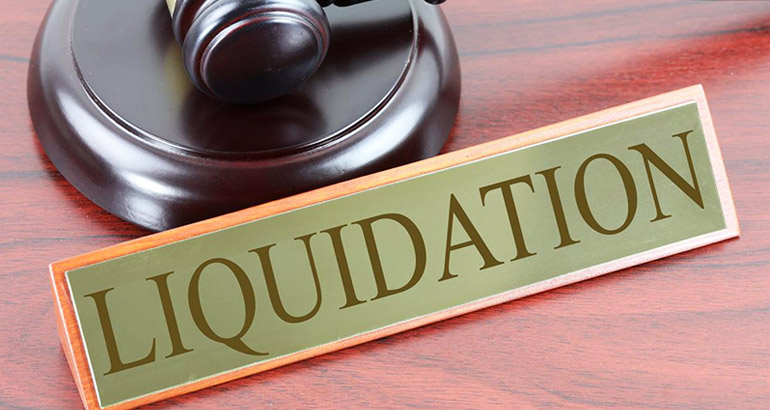Company Liquidation Fundamentals Explained
Company Liquidation Fundamentals Explained
Blog Article
Company Liquidation Things To Know Before You Buy
Table of ContentsThe smart Trick of Company Liquidation That Nobody is Talking AboutThe Definitive Guide for Company LiquidationCompany Liquidation for DummiesFascination About Company LiquidationCompany Liquidation Can Be Fun For Anyone
A liquidator is especially selected to manage the ending up of a business's affairs in order for it to be shut down usually when the company is going bankrupt. The liquidator is an impartial third event that manages the sale of business assets in order to repay any kind of impressive financial obligations.Their function includes, yet is not restricted to: Unbiased Overseer: A liquidator is entrusted with functioning as an unbiased 3rd party to supervise the entire firm liquidation process. Develop Declaration of Affairs: Liquidators have to produce an extensive declaration of events document. This record is distributed to creditors, describing the current economic condition of the business at the time of its liquidation.
After the liquidation of a firm, its existence is gotten rid of from Business House and it stops to be a legal entity. If supervisors navigated the process uncreative, there would certainly be no charges or personal obligation for strong financial obligations anticipated. Now, with a fresh start, directors can check out new service opportunities, though professional appointment is recommended.
Get This Report on Company Liquidation
If even more than 90% of all firm investors concur, liquidation can take location on short notice within 7 days, the minimal legal notice for financial institutions. Generally, the larger the liquidation and the more assets and capital the business has, the longer the procedure will certainly take.

We comprehend that no two companies coincide, which is why we will take the time to learn more about your service so we can suggest the most effective strategy for you. We just function in your finest interests, so you can be totally certain in the solution we supply.
Things about Company Liquidation
In the UK, there is a set procedure to closing down or reorganizing a restricted firm, whether it is solvent or financially troubled. This procedure is called liquidation and can just be handled by a qualified insolvency expert (IP) in accordance with the Bankruptcy Act 1986. There are four primary sorts of business liquidation procedure: Creditors' Volunteer Liquidation (CVL); Compulsory liquidation; Administration; and Participants' Voluntary Liquidation (MVL).

In these circumstances, it is very important that the business stops trading; if business remains to trade, the supervisors could be held directly liable and it could result in the bankruptcy professional reporting wrongful trading, referred to as misfeasance, which may lead to lawful action. The directors designate an insolvency specialist and once this has actually been agreed and confirmed, there is a meeting with the shareholders.
The supervisors are no much longer entailed in what happens, consisting of the sale of the business's assets. If the directors desire any of the possessions, they can notify the IP.
Little Known Facts About Company Liquidation.
The primary distinction is click to read that the company's creditors used to the court for an ending up order which compels the bankrupt firm right into a liquidation process. In the majority of situations, financial institutions take this action as a last option since they haven't gotten settlement through various other forms of arrangement. The court designates a bankruptcy professional, also called an official receiver, to perform the mandatory company liquidation process.
This kind of business liquidation is not volunteer and directors' conduct is reported to the UK's Assistant of State once the liquidation process has been finished. For that reason, any type of director that stops working to cooperate with the IP or has actually been involved in director transgression, or a deceptive act, might result in severe effects (Company Liquidation).
It is utilized as a look at this web-site method to secure the firm from any kind of lawful activity by its financial institutions. The directors of the company agree to make regular payments to settle their debts over a period of time.
Company Liquidation Fundamentals Explained
This supplies the firm with time to establish a strategy going onward to save the firm and stay clear of liquidation. Nonetheless, at this moment, supervisors hand control of the business over to the selected manager. If a firm is solvent however the supervisors and shareholders wish to shut the company, a Members Voluntary Liquidation is the right choice.
The business liquidation process is handled by a liquidator selected by the supervisors and shareholders of the firm and they must sign a statement that there are no financial institutions staying. The liquidation process for an additional resources MVL is similar to that of a CVL in that assets are know yet the earnings are dispersed to the directors and the shareholders of the business after the liquidator's costs have been paid.
Report this page